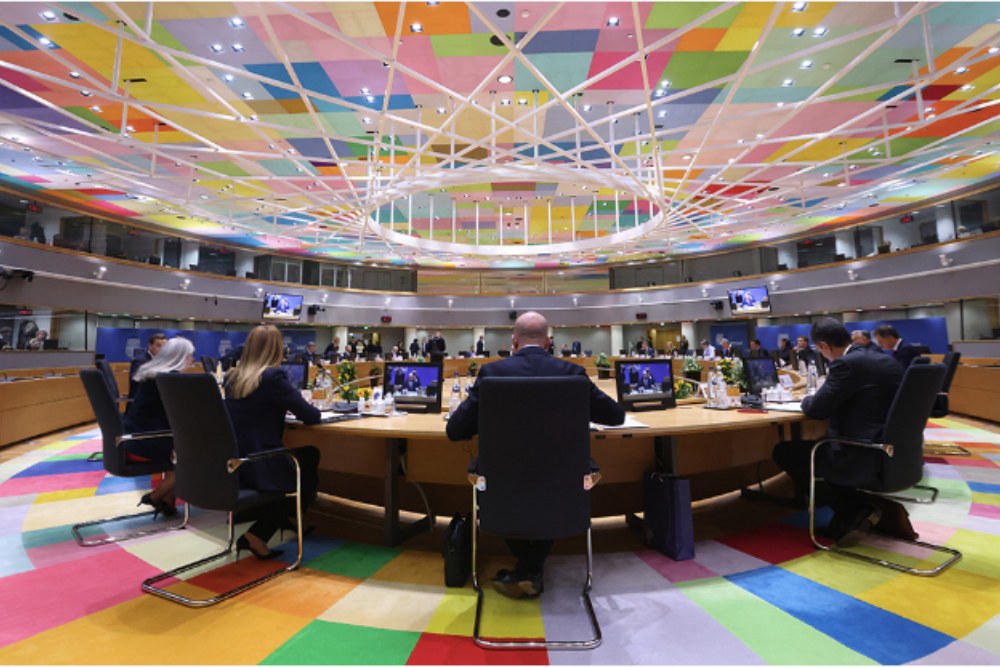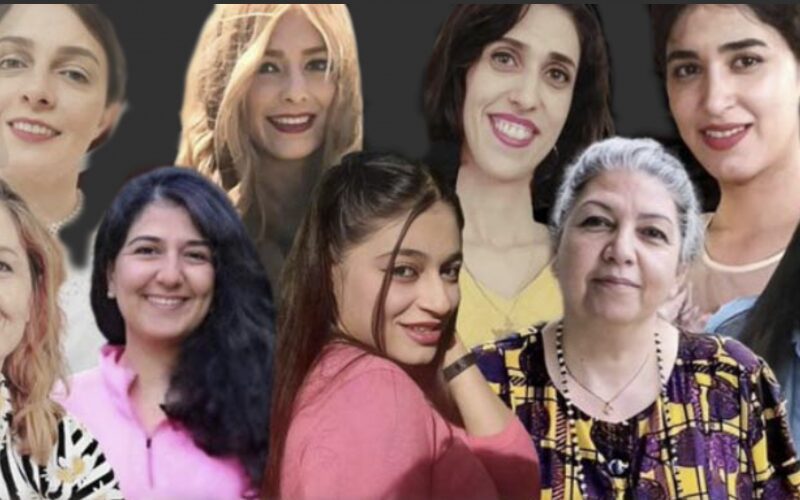In a deeply disturbing event that has shocked the global religious community, a bomb explosion occurred during a Jehovah’s Witnesses gathering in Kalamassery, near the port city of Kochi, India. This tragic incident resulted in the heartbreaking loss of three lives and caused numerous injuries.
I believe that examining the incident in detail, its implications and herding light on the broader interfaith tensions prevailing in the region is a must, including its relation with the responsibilities of state agencies worldwide not just India but in Europe.
The attack in India against the Jehovah’s Witnesses
The person responsible for this horrendous act identified himself as a former member of the church who now holds a radicalized opposition to them (like the bloody attacj that occurred in Germany in March this year). After the suspected bomb blast, he voluntarily surrendered to the police.
On that ill-fated Sunday, over 2,000 individuals were present at the Zamra International Convention Centre for a three-day Jehovah’s Witnesses meeting when an explosion suddenly tore through the crowd. The Director General of Police of Kerala, Darvesh Saheb, confirmed that it was an IED (improvised explosive device) blast. Initially claiming two lives instantly, this tragic incident later claimed another life. That of a 12-year-old girl, due to the injuries caused by the murderer.
The suspect who goes by Dominic Martin released a video message on social media taking responsibility for his actions before surrendering himself to authorities.
This revelation has caused a wave of investigations by the police, as reported by The Times of India, who are looking into his claims and the unjustifiable reasons behind his actions.
The incident has gained significant attention because it took place within a community that represents only a small portion of India’s religious makeup. According to the latest census in 2011, Christians make up around 2 percent of India’s population of 1.4 billion people. The Jehovah’s Witnesses, an American Christian evangelical movement known for their door-to-door evangelism efforts, have approximately 60,000 members in India based on information from their church’s website.
Attacking peaceful groups
This incident is particularly disturbing given the peaceful and non-violent principles upheld by the Jehovah’s Witnesses, who are also politically neutral. They have faced persecution and restrictions in various countries and were among those who also suffered because of the Nazis at the Holocaust.
The bomb explosion further contributes to tensions between different communities within this prosperous southern state, which is home to more than 31 million people. According to census data, Muslims make up approximately 26 per cent of the population. Saheb urged the public to maintain peace and avoid sharing provocative content on social media platforms.
Some media state that it’s worth mentioning that the day before the explosion, there was an unrelated event where Khaled Mashal, a former Hamas leader, spoke at a pro Palestinian rally in Malappuram, Kerala—around 115km north of the blast site. Although there is no evidence linking these two events, some posts on social media have been suggesting connections, which has only added to the tensions.
Mashal’s address was organized by a youth solidarity group associated with the Islamic Jamaat e Islami Hind party in Kerala—a move that drew criticism from the ruling Bharatiya Janata Party, which is Hindu nationalist.
This tragic incident highlights the urgent need for interfaith dialogue and understanding within our diverse and complex socio religious landscape. As investigations continue, it’s essential to keep in mind both the victims and their families and emphasize peace and unity during these challenging times, but without forgetting to question what is the responsibility of governments when discriminating against religious minorities and of mainstream media when when propagating the mentioned discrimination and slandering against religious movements as an almost “politically correct” way of talking about them.
The Perils of State-Sanctioned Hate
The recent bomb blast at a Jehovah’s Witnesses meeting in Kalamassery, India, serves as a grim reminder of the dire consequences of religious intolerance. It underscores the potential dangers when hate, whether overt or subtle, is propagated or condoned by state agencies (and increased by media) against religious minorities.
Religious minorities, such as the Jehovah’s Witnesses in India and Europe, the Ahmadiyya Muslims, Baha’is, members of Scientology and others, often find themselves on the receiving end of societal prejudices, which can be exacerbated (if not produced) by state-sanctioned hostility. And this happens not only in India, Pakistan, Bangladesh, China and Russia, but also in allmighty human rights defenders such as Germany, France, Hungary and others. I know, it is unbelievable that one would put countries such as Germany and France at the level of Russia or China, but unfortunately there are similarities.
Back to the current case, the Jehovah’s Witnesses, a Christian evangelical movement, has faced persecution and restrictions globally, despite its peaceful and politically neutral stance. The recent incident in India, involving a former member of the church, has brought the issue of religious intolerance into sharp focus and the role played by states and by antireligious organizations in radicalizing ex-members of groups.
State agencies in many societies have a significant impact on shaping public opinion. When these agencies promote or tolerate prejudices against religious minorities, they indirectly contribute to creating an environment of hostility and intolerance. This kind of atmosphere has the potential to radicalize individuals, driving them towards violent and terroristic acts.
A Closer Look at the Role of State Agencies in Propagating Religious Intolerance
The idea that state-sanctioned hate can be a catalyst for acts of terror is supported by numerous studies and reports. These sources have highlighted the correlation between state-sponsored discrimination and the increase in hate crimes and acts of terror. For example, organizations like Human Rights Watch have repeatedly drawn attention to instances where state policies and rhetoric have fostered an environment conducive to hate crimes. The same has been demonstrated by numerous reports and analyses by Human Rights Without Frontiers and even the specialised magazine BitterWinter.
In countries like India, which has a diverse socio-religious landscape, the role of state agencies becomes even more crucial. The promotion of hate or prejudice against any religious group has the potential to disrupt the delicate balance of religious harmony.
The recent tragic incident in Kalamassery serves as a stark reminder that unchecked hatred and intolerance can escalate into violence. It emphasizes the global responsibility for state agencies to use their influence responsibly by promoting unity and understanding instead of division and hostility.
State agencies have a crucial role beyond just maintaining law and order. They should actively focus on promoting religious tolerance and respect. Achieving this requires implementing policies, like the ones highligthed in the latests report of the UN Special Rapporteur on Freedom of Religion or Belief, that encourage interfaith dialogue, educational programs that foster understanding and acceptance of various faiths and strict laws against hate speech and crimes.
To conclude, the idea that state sanctioned hate can lead to acts of terror carries significant weight. It is a call for state agencies worldwide to reflect on their influence in shaping societal perspectives towards religious minorities. Only by actively promoting tolerance and respect for all religions can we hope to prevent such tragic incidents in the future.
References:
1. “Bomb blast at Jehovah’s Witnesses meeting in India kills 3, wounds dozens” – The Times of India
2. “Suspect in Jehovah’s Witnesses bomb blast surrenders to police” – Press Trust of India
3. “Jehovah’s Witnesses in India” – Church’s Official Website
4. “Intercommunal tensions in India’s southern state” – Census Data
5. “Former Hamas leader addresses pro-Palestinian rally” – Bharatiya Janata Party Official Statement.
6. “State-Sanctioned Hate and the Rise of Terror Acts” – Human Rights Watch
7. “Religious Intolerance and its Impact on Society” – United Nations Reports
8. “The Role of State Agencies in Promoting Religious Harmony” – International Journal of Religious Freedom.












